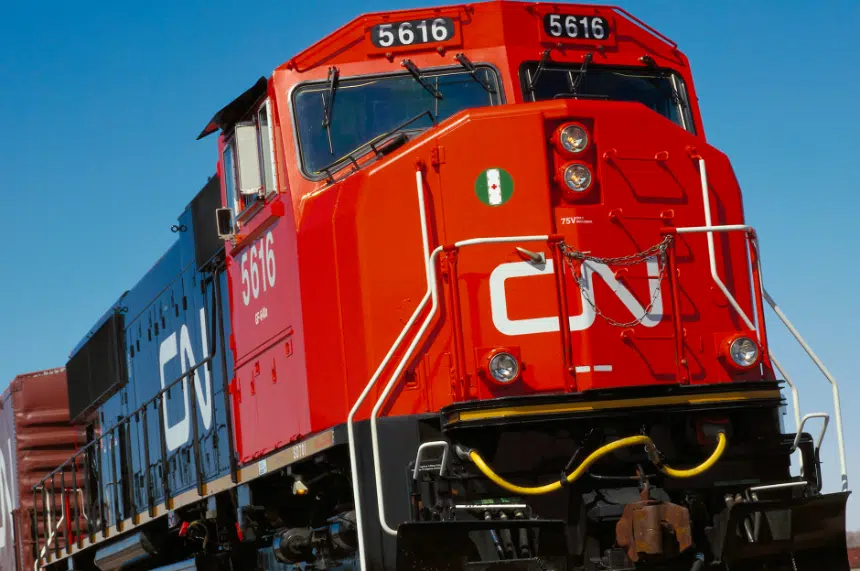Blockades have been popping up across the country on Canadian National railways in support of the Wet’suwet’en hereditary chiefs, who are protesting the Coastal GasLink Project.
The blockades have prompted CN to cancel more than 500 trains already.
On Friday, CN executive vice-president Sean Finn was on Gormley to talk about the ongoing protests and what they mean for business moving forward.
“We had one (blockade) between Prince George and Prince Rupert that lasted six days last week. We are now recovering in Western Canada. We are working on getting the railway back to where it should be west of Toronto,” said Finn.
“The grain from Western Canada, from Saskatchewan, is going out west from Vancouver to Prince Rupert. When you shut down Rupert, that is 35 per cent of our capacity. We have now got it open (and) our train crews and our people in Edmonton at the operating centre are working 24/7 to recover our fluidity.”
The blockade near Prince Rupert was taken down last week but Finn says getting everything working normally could take another week or 10 days.
However, the blockade in Belleville, Ont., that has been up for two weeks already and still hasn’t been taken down represents a much bigger problem for CN.
“When you have the shutdown of a railway for six days — or in the case of Belleville two weeks — when you recover, it is very much an art not a science to make sure you get the train moving again and that you don’t clog up the yard in Saskatoon or Regina and so you do it in a structured and organized fashion,” said Finn.
“We hope we have court orders to have it lifted as soon as possible. The Ontario Provincial Police and the federal government are hopefully negotiating with the First Nations. But when that gets lifted, we are talking about weeks of recovery in Eastern Canada for sure, so for two to three weeks or even longer.”
According to Finn, once CN gets a court order for the blockades to be removed, it becomes the discretion of police services as to when and how they remove the barriers.
“We find it extremely frustrating. We know they have a job to do but in the meantime we have our railway plus our customers and the Canadian economy being impacted,” he said.
“It’s not just about CN and we are not the cause of this blockade but you know this impacts the Canadian economy, Canadian industry but also some individual Canadians who are at the risk of having their livelihood impacted by this very unfortunate and illegal blockade.”
A blockade near Edmonton was taken down earlier this week by counter-protesters who showed up and began loading the blockade material into the back of a truck.
When asked if that was something more people could be doing, Finn said he wouldn’t encourage anybody to trespass on CN’s main lines, whether they’re protesters or counter-protesters.
“It’s important that we make sure these blockades are terminated lawfully or peacefully. I think that it is a bit dangerous to have people walking on our main line even if it is to undo a barricade,” he said.
“So we would prefer to serve the injunction and rely on law enforcement to do so.”







